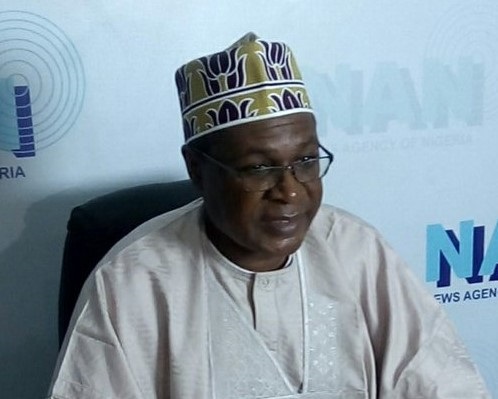Seven public primary schools and their host communities in Lagos State are to undergo plastic recycling and waste management training initiated by the Nigerian Conservation Foundation (NCF) and its partners.

A statement by the NCF’s Spokesman, Mr Oladapo Soneye, on Monday, December 13, 2020 said the training would encourage adoption of eco-conscious lifestyles by children and teachers of the selected schools.
Soneye listed benefitting schools and communities to include: Dele Ajomale Schools Complex (I–IV) Ilasamaja, Metropolitan Primary School, Orile-Iganmu, Olisa Primary School and Methodist Primary School, Mushin.
He said Oando Foundation (OF) an independent charity, initiated the project to promote environmental education and sustainable action for pupils in target schools and host communities.
He noted that the project was being supported by Sumitomo Chemical, a Japanese Chemical Company.
“Sumitomo Chemical, Japan is the co-funding partner, while the Nigerian Conservation Foundation (NCF) is the implementing technical partner on the project.
“The project, tagged: ‘Clean Our World’ (COW), aims to promote environmental education and responsibility by creating awareness and empowering children and teachers in seven public primary schools and their host communities,” he stated.
He said Nigeria generates over 32 million tons of solid waste annually out of which more than 30 per cent was plastic compounding flooding across cities due to poor waste disposal techniques.
He noted that education was an important global response to environmental sustainability to help young people understand and tackle environmental issues through attitudinal and behavioral changes.
“When environmental education is integrated into the curriculum, pupils are more enthusiastic and engaged in learning, which improves learner achievement in core academic areas.
“Creating awareness on recycling, environmental responsibility and sustainability will help explain, inform, motivate, persuade, and encourage beneficiaries in target schools and communities to embrace behavioral changes necessary for long-term impact,” he stated.
He lauded the Lagos State programme, Adopt-A-School Initiative (AASI), Oando Foundation which had adopted eight public primary schools, constructed and renovated 36 units of classrooms.
He listed other facilities provided to include, furniture, sanitation facilities, three solar-powered digital learning centres, trained over 100 teachers in core subject knowledge and modern pedagogical skills.
Others were Quality Assurance Officers in Education Management Information Systems, scholarships to 155 secondary school students, distribution of over 3,000 learning and instructional materials to teachers and pupils.
He also quoted Dr Muhtari Aminu-Kano, Director General of NCF, as calling for caution in waste management to protect the environment.
“We cannot continue to be reckless in the way we handle our waste. The menace of improper waste management is huge on the environment with consequences on human health.
“This partnership is seeking to address this menace using best practices,” he said.
Aminu-Kano commended Oando Foundation’s commitment to designing and implementing multi-dimensional education interventions to support schools, communities, and the Nigerian government in realising the Sustainable Development Goals.
He also quoted Mrs Adekanla Adegoke, Head, OF, as saying its partnership with Sumitomo Chemical had been for mproved digital literacy in public primary schools across Nigeria.
Adegoke had noted Oando Foundation’s commitment to the COW project through team work to designing and implementing multi-dimensional education interventions.
He said learning transcended the classroom, and encouraging environmental education through the COW project would help pupils understand how their choices impacted the environment.
“Not only does COW offer opportunities for experiential learning outside of the classroom, it enables pupils to make connections and apply their learning in the real world,
“It also encourages the development of critical and creative thinking skills necessary for enhancing overall learner outcomes,” Adegoke said.
He also quoted Mr Tomoyuki Hirayama, General Manager, General Affairs Department, Sumitomo Chemical, saying it was passionate about improving Africa’s education.
Hirayama said the education sector was important for Africa to achieve self-sustaining economic development, hence the firm’s partnership with NCF and OF.
By Grace Alegba
